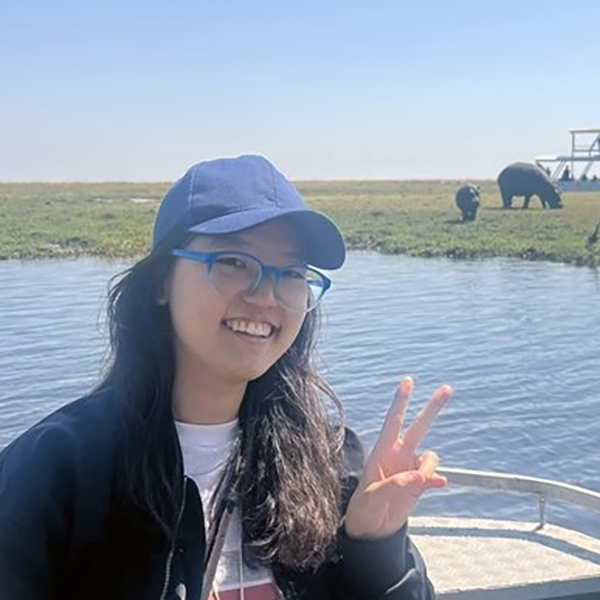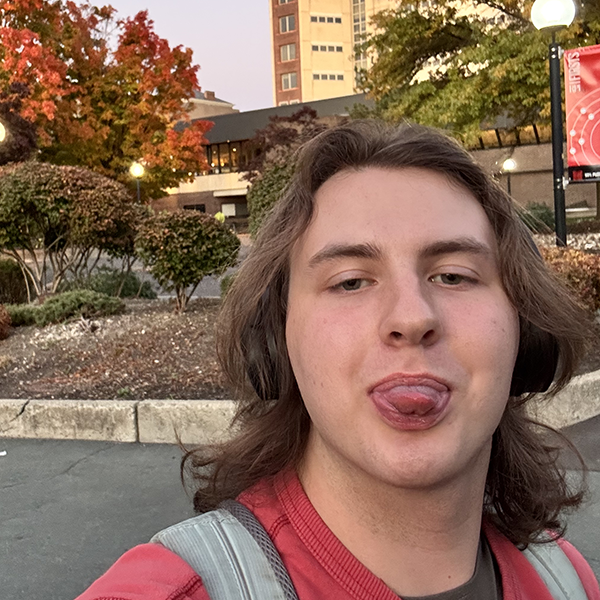The Micro and Nanofabrication Clean Room (MNCR) facility within the Center for Materials, Devices and Integrated Systems (CMDIS) is a Class-100 facility located on the 4th Floor of the Center for Industrial Innovation (CII) building. The MNCR offers a wide range of processing, measurement, and fabrication tools for microelectronics, optoelectronics, MEMS, and other small-scale devices. It has equipment that enables the deposition and etching of thin films, patterning of devices and nanostructures, wet chemical processing, and metrology capabilities.
The growing semiconductor and electronic devices industries and pharmaceutical, medical, optical, solar, and aerospace industries depend on cleanroom technologies where the contamination is controlled. With the increasing demand for engineers and scientists with focused training in cleanroom operations, we offer a certificate program for undergraduate students to start building a foundation. This certificate program is an exciting opportunity for undergraduates, both those planning to pursue a graduate degree and those looking to prepare for a professional career.
This certificate program is designed to introduce microfabrication and analysis concepts to interested undergraduate students. The program currently offers four modules, each running over four weeks. Each weekly lab session will last approximately two hours and consist of classroom instruction and a hands-on laboratory demonstration. A student may take any offered module in any order and is expected to attend each of the four weekly lab sessions. By completing all four modules, the student will be awarded a Microelectronics concentration certificate and be allowed access to cleanroom lab space.
Program and Modules
Module 1 - Lithography (Spin Coating, Optical Lithography, Maskless Lithography, E-Beam Lithography)
Module 2 - Deposition (Vacuum Science, Chemical Vapor Deposition, Physical Vapor Deposition, Atomic Later Deposition)
Module 3 - Metrology (Optical Microscopy, Contact Techniques, Non-contact Techniques, Scanning Electron Microscope)
Module 4 - Etching (Wet Etch, Plasma Physics, Reactive Ion Etching, Gas Delivery and Abatement)
Eligibility and Participation Requirements:
This is a competitive program with limited seats. Selected participants are expected to fully engage in all sessions, as consistent attendance is required to complete the program and earn certification.
1. Open to any RPI / HVCC undergraduate student with an interest in the field.
2. Each module is limited to six students; participants will be selected based on their interest and/or prior participation in the program.
3. A minimum of 85% attendance is required to receive certification; no make-up sessions will be available.
Registration:
https://webforms.rpi.edu/form/cmdis-byond-certificate-2026
Contact: Sarah An (anx@rpi.edu)
PROGRAM GRADUATES

Lauren Voight
Senior, Biochemistry and Biophysics/ Computational Biology
Program Completion: Spring-2024
What motivated you to join this program? I was motivated to participate in the BYOND program because I have always been interested In semiconductor processing and learning more about the intricacies of the clean room.
What new skills or knowledge did you gain from this experience? In this program I learned the steps a wafer goes through, and all about the machines that assist in the process. As someone with non-engineering major I was able to draw connections on concepts that stretch between disciplines.
How do you plan to apply what you learned in this program to your future studies or career? The overall experience has provided me with a new perspective on my own research.

Jimin Lee
Sophomore, Electrical Engineering & Computer Systems Engineering Dual
Program Completion: Fall-2024
What motivated you to join this program? I joined this program to get a better understanding of microelectronics as a field. I liked that this program was a basic introduction but also had lessons and demonstrations from extremely knowledgeable mentors. I was initially very hesitant about doing anything related to semiconductors, but after joining this program I had a completely different view.
What new skills or knowledge did you gain from this experience? Through BYOND, I learned how to use different cleanroom tools to perform various kinds of measuring, deposition and removal of materials on our wafer. I was able to understand how the different tools worked, along with why some were more suited for a task than others. This program made me appreciate how well engineered all the processes in this field are, and how many various areas of science had to come together to advance this field.
How do you plan to apply what you learned in this program to your future studies or career? I'm hoping to go to graduate school and perform research in microelectronics or a related field, which wasn't a potential path that I wanted to go down until I did this program. Through BYOND, I was able to get a lot of the foundational knowledge and groundwork for starting in this field, along with actual hands-on experience within an actual research cleanroom.

Conner Wallace
Sophomore, Major: Biochemistry/Biophysics; Minor: Materials Engineering, Best Cat Dad ever!
Program Completion: Fall-2024
What motivated you to join this program? I was motivated to join this program because of my strong interest in Intracellular Robotics and Thermoelectric Devices for Medical Applications.
What new skills or knowledge did you gain from this experience? In this program, I learned various tools and techniques in nanometer semiconductor manufacturing. Tools and techniques like Scanning Electron Microscopy, Plasma Etching, and E-beam lithography to name a few!
How do you plan to apply what you learned in this program to your future studies or career? In my career, I plan to design medical devices, both large and nano-scale. With the techniques I have learned here, I will be able to better design the devices using available techniques and understand how to interpret the data from testing them.
 Theresa O’Connor
Theresa O’Connor
Sophomore, Major: Computer Systems Engineering
Program Completion: Spring-2025
What motivated you to join this program? I applied for BYOND to increase my general base of knowledge and, more importantly, to determine if semiconductor and chip manufacturing was a career path I was interested in pursuing to a higher degree.
What new skills or knowledge did you gain from this experience? Almost everything we were taught in this program was new to me, so it was very exciting to learn how the various tools in the cleanroom are used for lithography, etching, deposition, and metrology as well as how far semiconductor production has advanced since its beginning. The most memorable techniques to me from the program are Spin Coating, Sputtering, and Optical Lithography.
How do you plan to apply what you learned in this program to your future studies or career?From my experience in this program, I have determined that I do want to pursue a career in the microelectronics industry. I'm currently leaning towards IC Design for future research or a future career.
 Nathaniel DePue
Nathaniel DePue
Junior, Major: Mechanical Engineering
Program Completion: Fall-2025
What motivated you to join this program? I joined the program for my personal interest in semiconductor device fabrication and to discover if I wanted to work in the field. I had a theoretical background from classes but I wanted to get practical experience with the tools.
What new skills or knowledge did you gain from this experience? BYOND gave me a lot of hands on experience in the cleanroom. This type of work is practically impossible to get (especially as an undergrad) without an opportunity such as this program. Theory can be learned but BYOND has given me unique & valuable experience.
How do you plan to apply what you learned in this program to your future studies or career? I’m working towards a career in quantum device fabrication and these skills are an irreplaceable part of the toolset for that goal. This program gave me practical skills which I used to get an internship as an equipment engineer at IBM Semi. We’ll see where it goes but the trajectory is already looking up.
